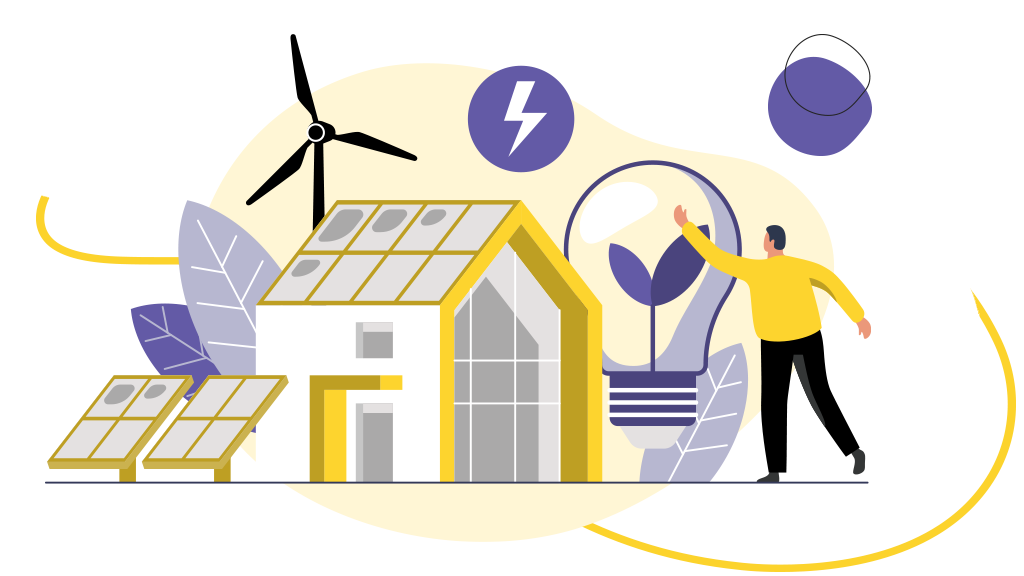Learn More
x




You arrived in the US, got a job, opened a business and now want to buy property. Although you might be feeling right at home, you are an immigrant and there is a lot to think about before going to a creditor. There are mortgage loans available to immigrants, but there are a few extra steps needed to qualify.
You will need to understand residency requirements, visa restrictions, and how mortgages and loans work.
The time, planning and effort you will have to put in to achieve home ownership in the USA will be well worth it. Owning property here is still a great way to secure a solid financial future for you and your family.
Keep reading to learn about the process and be prepared for any hurdles you might experience along the way.
There are a variety of home loan programs available to immigrants in the United States. Eligibility guidelines and documentation requirements vary depending on the type of residency you have.
Green Card Holders and LPRs can sometimes secure a home with only 3% down payments. They can use the same services as US citizens, such as FHA loans and other federally-supported services like Freddie Mac and Fannie Mae.
If you are a permanent resident, in addition to having a good credit score, you will need to show your most recent tax returns, asset statements and bank statements to secure a mortgage.
If you are a resident on a work visa, you have the option of seeking a loan from the Federal Housing Administration (FHA). You will need to provide proof of employment and a social security number (SSN).
You will need to prove that your work visa will allow you to stay in the country long enough to repay the loan. Therefore, apply for a valid employment contract that extends for up to three years, and be ready to provide a positive credit history, bank statements and tax returns for the previous two years.
Anyone who is granted refugee or asylum status can apply for a home loan through the same federally-supported services available to US citizens.
After one year, they can apply for a green card and seek home ownership after status is granted.
The beneficiaries of DACA can buy property in the US as long as it is for living and they have a credit score of 620 or higher. Financing options are still limited, but they will soon be eligible to apply for FHA loans.
Some lenders offer tax identification loans to immigrants living in the US without status, typically with an individual tax identification number (ITIN) instead of a social security number.
ITIN mortgages are lending practices that many undocumented immigrants use to buy a home. Your lender has the ability to take your property if you default on payments.
You can get this type of financing from local banks or smaller credit unions, which tend to have more competitive rates than big banks. Some cooperatives may have loan programs specifically tailored to immigrants.
Generally, an ITIN mortgage will require a downpayment of 20% and will be a 30-year fixed rate mortgage. Unfortunately, interest rates for ITIN mortgages are often higher than others, at around 7 or 8 percent.
Anyone within the borders of the United States, even if they do not have the status of residence, are protected by the 14th Amendment of the Constitution, which grants the right to due process of law and equal protection.
The Fair Housing Act was passed in 1968 as a continuation of the Civil Rights Act of 1964. With the intention of eliminating the exclusionary practices and racial discrimination that have historically prevented people of color and immigrants from buying homes in certain neighborhoods and regions.
The Fair Housing Act made it illegal to deny financing or the rental of property to any individual based on race, religion, national origin or sex.
In 1974, this act was expanded to include gender-based protections and was expanded again in 1988 to protect families and individuals with disabilities.
If you’ve experienced discrimination at any point during your home-buying process, there are specific steps you can take to stop it:
Study the law even before your first meeting with a real estate agent or mortgage broker. It is illegal for a real estate agent to ask about your religion or immigration status, nor can they suggest neighborhoods or regions based on your ethnicity or race.
Almost all states host agencies that participate in the Fair Housing Assistance Program (FHAP); click here for Massachusetts. At these agencies, you can receive guidance on how to take legal action.
You can register a fair housing complaint (available in eight different languages) on an HUD within one year of the alleged violation or in a state or federal court within two years of the violation.
In addition to meeting standard loan requirements for income, credit, and downpayment, you will still have a few extra hurdles as an immigrant. This may include providing proof of:
Experts point out that when confirming that you fulfill all the requirements to become a prospective borrower, you should be very careful when choosing your lender. Check rates, get quotes and compare conditions from at least 5 companies.
Be aware: if your green card is about to expire or if you have a temporary visa, make sure that the lender you are working with does not have any additional restrictions.
Check international banks with branches in the United States for foreign nationality programs, especially if you keep considerable amounts of money on deposit with them.
Mortgage brokers and mortgage banks also often have access to a variety of non-QM loan programs. These are for people who do not qualify under standard mortgage criteria. But in this case, look at risk features like prepayment penalties, interest-only payments, and downpayment. As these loans do not fall under the Consumer Financial Protection Bureau’s (CFPB) “qualified mortgage” rule, lenders may offer terms that can be difficult to pay.
Residents with permanent visas and many non-permanent residents are eligible for most government-backed and non-government mortgage programs.
Undocumented immigrants and foreign nationals typically do not qualify for regular mortgages because they do not meet legal residency requirements or cannot prove US income.
Discover the programs available for each immigration status:
FHA Loans – A Federal Housing Administration (FHA) guarantees loans made by FHA-approved lenders with a downpayment of up to 3.5% and a credit score as low as 580.
VA Loans – This loan is guaranteed by the US Department of Veterans Affairs (VA). Non-permanent resident immigrants cannot join the army. However, immigrants with a green card can join the army and serve, thereby becoming eligible for this loan.
Conventional Loans – Fannie Mae and Freddie Mac are government-sponsored companies that buy home mortgages and set guidelines for 3% down home purchase programs. Permanent and non-permanent residents with a minimum credit score of 620 are eligible for conventional loans.
Non-QM loans – Foreign citizens and immigrants without legal permission to live in the US may qualify for non-qualified mortgage (QM) programs offered by alternative lenders. This type of loan is for anyone who does not meet the strict rules set by regulators to verify the ability to repay a home loan. If you don’t have a Social Security number or verifiable US income, you may be eligible for these specialized programs. However, you can expect a higher downpayment, higher interest rates, and sometimes prepayment penalties that involve a fee if you pay off a loan before a certain period of time.
To take out a mortgage, you will be required to have valid home insurance for the home you want to buy. Therefore, it is very important that you include the value of the insurance in the calculations of your monthly cost with the purchase of the house.
At BRZ, you can get a quote that is free of charge and without any commitment or strings attached.
When in doubt, speak with a BRZ agent! All of our professionals are trained and available to answer all your questions and guide you in choosing the best coverage that works for you.
Learn More

One of the best ways to reduce your monthly bills is to invest in renewable energy. This can often be done with systems you can build yourself.

Coverage for damages from a heating oil spill is not included in a Homeowners Insurance policy. In this article, we list everything you need to know about heating oil spills in your home and how to protect yourself from damages.
Learn all about Homeowners Insurance and how it can protect your dream home and your family in Uncle Sam's land.

We are an insurance company made by people for people. A community that speaks tyour language, with people who care about your future! Here you can find all the protection and care that a home offers. Come and join us!
Get a Quote

Need help? Chat with BRZ!
x